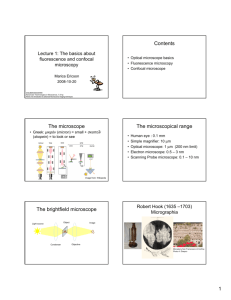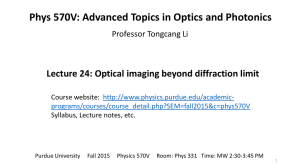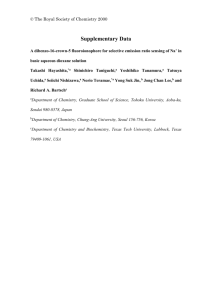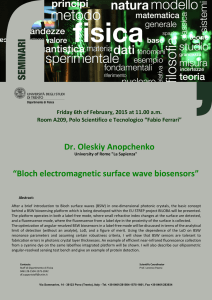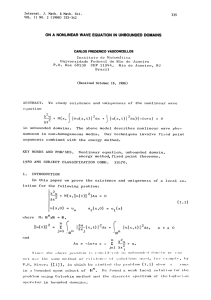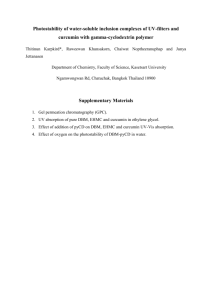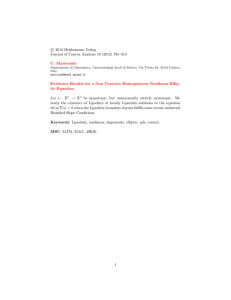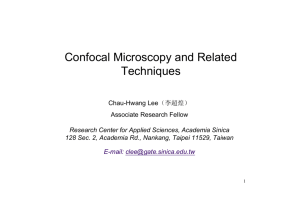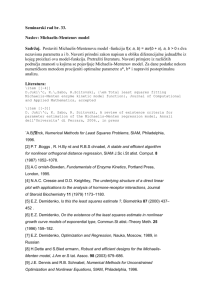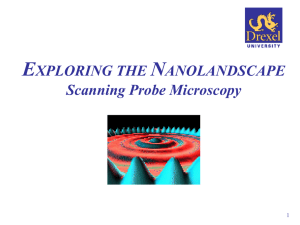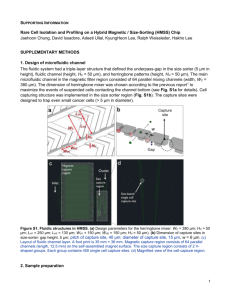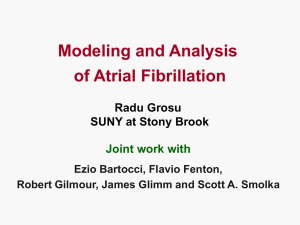Seminario
advertisement
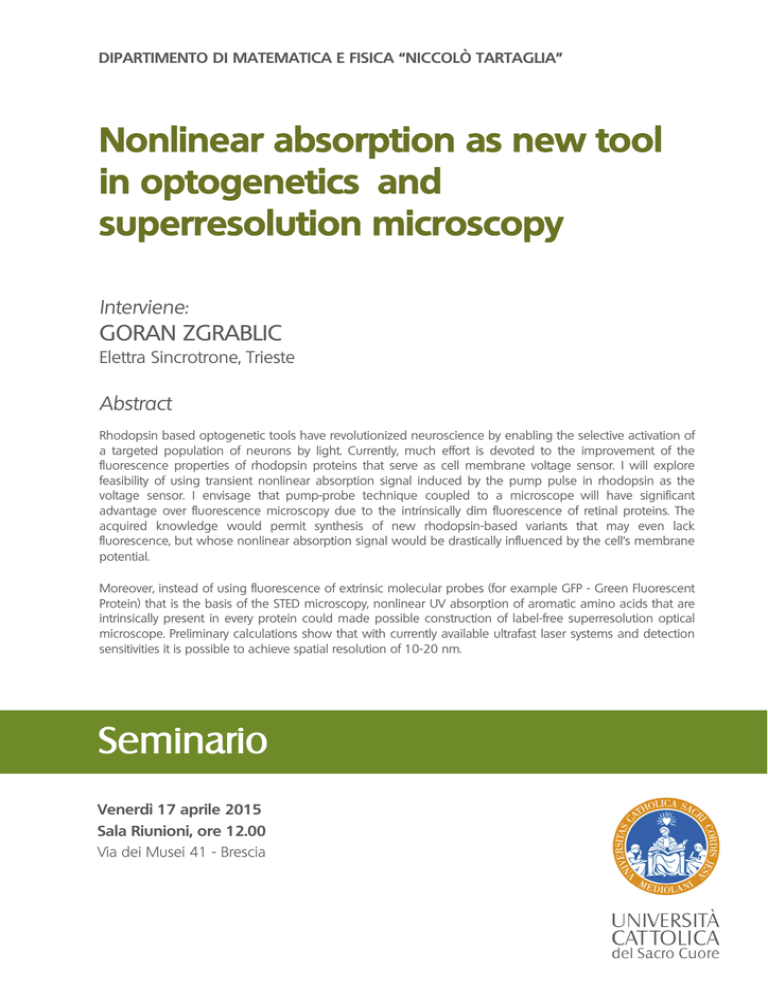
DIPARTIMENTO DI MATEMATICA E FISICA “NICCOLÒ TARTAGLIA” Nonlinear absorption as new tool in optogenetics and superresolution microscopy Interviene: GORAN ZGRABLIC Elettra Sincrotrone, Trieste Abstract Rhodopsin based optogenetic tools have revolutionized neuroscience by enabling the selective activation of a targeted population of neurons by light. Currently, much effort is devoted to the improvement of the fluorescence properties of rhodopsin proteins that serve as cell membrane voltage sensor. I will explore feasibility of using transient nonlinear absorption signal induced by the pump pulse in rhodopsin as the voltage sensor. I envisage that pump-probe technique coupled to a microscope will have significant advantage over fluorescence microscopy due to the intrinsically dim fluorescence of retinal proteins. The acquired knowledge would permit synthesis of new rhodopsin-based variants that may even lack fluorescence, but whose nonlinear absorption signal would be drastically influenced by the cell's membrane potential. Moreover, instead of using fluorescence of extrinsic molecular probes (for example GFP - Green Fluorescent Protein) that is the basis of the STED microscopy, nonlinear UV absorption of aromatic amino acids that are intrinsically present in every protein could made possible construction of label-free superresolution optical microscope. Preliminary calculations show that with currently available ultrafast laser systems and detection sensitivities it is possible to achieve spatial resolution of 10-20 nm. Seminario Venerdì 17 aprile 2015 Sala Riunioni, ore 12.00 Via dei Musei 41 - Brescia
